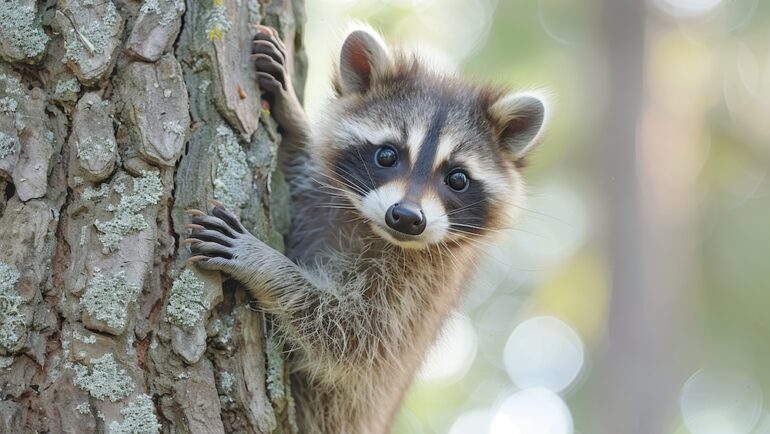You might be working in your flower bed one day and find baby wildlife that seems to be abandoned: a tiny raccoon, deer, squirrel, or bird. As adorable as the creature may be, with its big brown eyes and tiny whiskers, you should leave it alone. Here is why.
It’s a wild animal, and so is its mother.
Finding baby wildlife is exciting, but just because an animal is alone does not mean it has been abandoned. Mother deer often hide fawns in bushes while they go forage, possibly for extended periods. Baby squirrels and raccoons might sometimes be abandoned by their mothers, but most likely, they are also nearby.
Baby birds may fall out of the nest or be found on the ground after making their first attempts at flying. If a baby bird has feathers and open eyes, it is probably starting out on its own in life, so don’t disturb it. If it has closed eyes and no feathers, it will die if left out of the nest and needs help. The nest may be right overhead, so you can hopefully put the bird back where it belongs.
Baby lizards and snakes will do just fine without their mothers. Reptiles are born to be independent from the start.
What to do if you have baby wildlife on your property
If you find a baby mammal of any sort, leave it alone and just keep an eye on it throughout the day. Chances are, the mother will return for it. There is one exception, and that would be if the animal is visibly hurt or sick. In such a case, call your local animal control or a wildlife removal service. Trying to handle a sick or injured animal puts you at risk of being bitten, scratched, or possibly infected with disease. Animal control will handle the creature with compassion and care.
If no mother returns for the baby and you must move it for some reason, first lay a towel over it. Wearing thick gardening gloves, gently pick the animal up and move it to a safe place. Then call animal control.
Remember, it is a wild animal.
Resist the urge to try to make a pet of the animal. Adorable though it may be, when a wild animal grows to adulthood, it can become more aggressive and pose a danger to you and your family.
Related – Birds Have Nested On Your House? Here’s What to Do


